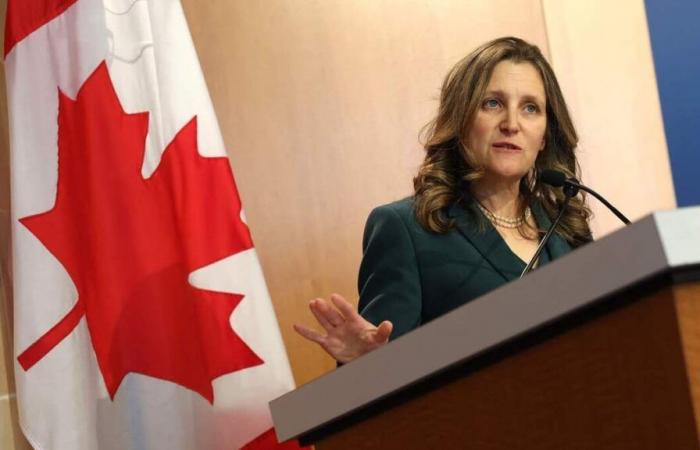Chrystia Freeland intends to replace the carbon tax with a new system if she takes power, says a source close to her. The former minister is expected to launch her campaign to succeed Justin Trudeau on Friday, in Montreal and Toronto.
• Also read: PLC leadership race: two-way fight to be expected between Chrystia Freeland and Mark Carney
• Also read: Race to the PLC: Quebec passes its turn
In a brief message, this source indicates that Ms. Freeland “will not argue with Canadians over a policy that they have made clear they do not support.”
She proposes to replace it “with a system which will work within our federation and which will be developed in collaboration with the provinces and territories”.
“She is prepared to make tough decisions to meet our emissions targets and to ensure that big polluters pay for their outsized emissions,” says the source.
Coming into force in April 2019, the carbon tax is one of the flagship measures of the climate ambitions of Justin Trudeau’s government, which has set the year 2050 as the horizon for achieving carbon neutrality.
As former Minister of Foreign Affairs and then Finance, Chrystia Freeland often had to defend this policy, notably against Conservative leader Pierre Poilievre, who made the abolition of the tax a central electoral argument in the last two years. .
Ms. Freeland is expected to launch her campaign for the leadership of the Liberal Party of Canada (PLC) before Donald Trump’s inauguration on Monday.
The former deputy prime minister received the support of Health Minister Mark Holland and former Quebec minister Diane Lebouthillier.
His main opponent, Mark Carney, will launch his campaign in Edmonton, Alberta, later today. According to the Toronto Star, Mr. Carney should also promise to abolish the carbon tax.
The tax does not apply to Quebec or British Columbia, which has its own cap-and-trade system.
The objective of the carbon tax is to tax greenhouse gas emissions for
In 2023, the federal tax was $65 per ton of CO2, and it will continue to increase to $170 per ton in 2030.






